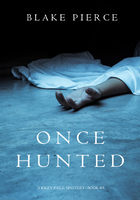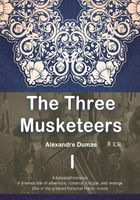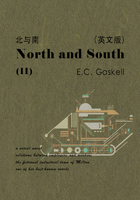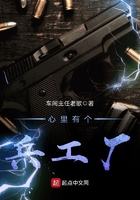I was lodged at the barracks for four days and employed there in a number of menial and disagreeable tasks for which I had not bargained, without even the satisfaction of being given a red coat to wear. I was also refused a pass through the gate lest I should be tempted to desert. On the 18th of August three other recruits and myself, under a Corporal Buchanan, were marched a distance of seventy-six miles by road to Waterford, where my regiment was then stationed. Of these three men, one was a 'dipper' or pickpocket recruited in Dublin Jail, and one a gin-shop keeper whose only means of escape from his creditors had been to join the Army. The third was a delicate young fellow named Richard Harlowe who was a man of some education and evidently owed his presence among us to some personal misfortune; though in all our long acquaintance he never let fall a single word as to his antecedents, and I was always too delicate to inquire into them. Harlowe and I struck up a sort of friendship on our march together, and I protected him from the insults of our two fellow recruits who sneered at him for a fine gentleman who found their company too low for him. I knew something of the art of boxing and made it clear that any malice that they showed towards him I would resent equally as if it had been directed against myself.
Our way lay through Timolin, Carlow, Kilkenny, and Royal Oak. It was for Harlowe and myself a matter of melancholy interest to contrast the magnificence of the country seats of the nobility and gentry, and the decency of the dwellings allotted to their retainers, with the sordid cots of the unprotected peasantry. Castle Belan, two miles beyond Timolin, was a case in point, the residence of the Earl of Aldborough. The house, which we turned aside to visit, stood near the junction of two streams, the Greece and the Arrow, with before it a wide lawn gradually sloping from a grove of high fir-trees to the gently flowing Greece, between two rows of elm and ash. The Earl was very busy at this time on the modernization of the house, which was built in the plain style in use under King George I; and this process when complete was to include a fruitery, hot-house, green-house, icehouse, a chapel, a theatre, a pheasantry, and two porters' lodges to each of the six approaches-twelve in all-and stone piers and sweep walls. Each approach was an English mile in length from the house. There were artificial waters in the pleasure grounds besides the two streams aforesaid, namely, ponds, canals, and a small lake replete with carp, tench, trout, pike, cray-fish, etc., and with all sorts of domestic and foreign waterfowl. His Lordship had, moreover, erected a spacious inn and planned to construct forty slate farm-houses for the Protestant tenantry of his out-domain. But a mile or two away from this island of opulence we came upon a cluster of Papist cabins in the pitiful old style, of mud and turf. We should have thought it impossible for human beings to exist in such abject poverty, sloth, dirt, and misery: which was worse even than anything that I had seen in County Meath as a boy-indeed seldom in all my subsequent travels did I see such 'looped and windowed raggedness' or such pinched, greenish animal faces as there.
A toothless old man to whom we spoke, told us among other particulars that there were not more than a half dozen ploughs in the whole parish; that these were let out by their owners at a high rate, but that for the most part the spade ruled hereabouts. The labourers were paid by their titular employer, an absentee rector, not in money but in small potato-plots of an acre apiece, for which they were charged six pounds a year; which they worked out at the rate of fivepence a day. They ate no bread, but only potatoes, even on feast-days. Some of them were also, as a charity, allowed the grazing of a cow. This serfdom was aggravated by their compulsion to pay tithes (though illegally) on potatoes, turf, and furze, for the support of a religion which oppressed and detested their own. At the time that we passed through, there was almost famine in the village: as was customary in the months of July and August when the old potatoes were exhausted and the new not yet come to maturity. The cottiers were obliged to fall back upon boiled cabbages and nettles with a little milk, so that many, as usual, were dead of the flux. But once every week when their tyrants, the tithe-proctor and the tithe-farmer, and the other Protestant gentry were safely away at church together down the road-where a wretched out-at-heels curate officiated-they would bleed the cattle fattening on the summer grass to make themselves a holiday meal of black pudding. The tithe-farmer bought the tithes from the tithe-proctor (who managed for the rector) and each turned a profit by the transaction. The peasants were the slaves of the tithe-farmer and were made to draw home his corn, hay, and turf for nothing, and to give him their labour and that of their children whenever called upon.
I presented the old man with a sixpence, which he gazed at with wild joy and wonder. It was, he assured us with tears, the grandest coin that any man in the village had seen since Christmas; and he would be careful about taking it to some friends a great distance off to change it into half-pence, lest the tithe-farmer should get wind of his riches. He wished me abundant prosperity, health, glory, etc. etc., which grateful oratory I cut short by remarking that a stout gentleman was coming towards us who had the very air and complexion of a tithe-farmer. The old man took to the hedge like a hare and I saw him no more.
In our journey we passed many places hardly less wretched than this.
Corporal Buchanan was of the blustering sort. He soon had cause for gratitude to Harlowe and myself, though he did not mitigate his severity towards us on that account; for just after dawn, in the barn where we were lodged, near the ruined Abbey of Craigenamanagh, I awoke to see Brooks the pickpocket rise secretly and rifle the pockets of the Corporal's coat. I raised the hue and cry and out he ran across the fields. I pursued him; but he had his shoes on, whereas I was unshod. He would have escaped, had not Harlowe pulled a stake from the hedge, caught and mounted a horse that was pasturing in a field, and ridden the fugitive down in the Abbey grounds. Brooks was conveyed for the rest of the journey with his hands firmly secured behind his back. There was, by the bye, a prophecy current in these parts that the fine ancient octagonal tower of the Abbey would fall down at last on the day when the Devil passed through Craigenamanagh. But it had a solid enough look.
On our arrival at Waterford, on August the 24th, we were put into the hands of an old drill-sergeant of the name of Fitzpatrick, who was a remarkably devout man-for a person of his profession. There were sixteen of us in his awkward squad, and on the first morning Sergeant Fitzpatrick addressed us as follows: 'My dear lads, now that you are set under my charge I will teach you to become good soldiers, if you will closely heed me. The Ninth Foot in which you have the honour of serving is the best regiment in the Army-barring always The Twenty-third, the Royal Welch Fusiliers, with whom I served throughout the Seven Years' War. For you know, my lads, that it is with a regiment as with a wife: you espouse her for life and are one flesh with her, you must never permit the least reproach to be spoken against her, as you love your own honour. I am, as it happens, a twice married man; The Ninth is my second wife and I honour her accordingly, but I cannot be untrue to the memory of my first. The Royal Welch Fusiliers were ever the boldest corps in the King's Army, and the truest on parade: and, what is more, we fought at Fontenoy, Dettingen, and Minden under the guiding eye of the Most High God and the inspiration of His saint, the Reverend Charles Wesley. But The Ninth is a very good regiment likewise.
'Understand, then (it is an order): The Ninth Foot is to be for you the ne plus ultra of martial perfection and you shall strive with all your might to keep it so.
'Next, my gallant lads, pay strict attention to what I say. These are my instructions with regard to you, viz.:-
'The Recruit is to be taught the several duties of the soldier, by gradation and regular stages, as follows:
'First-his body is to be formed, the air of the clown to be banished, and a manly, soldier-like deportment to be acquired.
'Secondly-he is to learn to march with ease and gracefulness, and to be taught the Step.
'Thirdly-the handling of his arms and the Manual Exercise.
'Fourthly-firing, and the Platoon Exercise.
'Fifthly-firing with ball.
'Now, in the first stage, you must learn from me the true position of the soldier: fixing your eyes upon me and making me your fugleman. You must keep your body erect, without constraint. Observe, my heels are close and in a line, my toes a little turned out, my belly rather drawn in than otherwise, my breast projected, my shoulders square to the front and braced well back, my hands hanging down my sides with the palms close to the thighs. Observe especially my head: how it is turned somewhat to the right, so as to bring the left eye in a direct line with the centre of the body, with my looks directed to an object to the right-the soldier's wife's chemise yonder hanging on the line.
'Come now, my brave boys, and we'll make a lucky start. Fall back against the wall of the privy in a line, the tallest soldier on the right, the shortest on the left.'
He had us back against the privy wall (our heels, calves, shoulders, the backs of our heads and palms of our hands all touching it) and kept us standing there, after correcting our position with stern judgments upon our boorishness, for fifteen or twenty minutes. The term 'Friday's children' was his most solemn abuse, by which he intended us to understand that we still formed part of the great animal kingdom, which included bears, asses, mules, puppies, and the round-shouldered ourang-outang. These the Almighty Lord created on the fifth day, Friday, before perfecting Man on the Saturday afternoon, and resting on the Sunday morning. Having then an immobile audience fixed before him, he would preach to us on the excellence of military discipline as moulding the man for duty and propriety in general, how it forms not merely good soldiers but good citizens and subjects to benefit the commonwealth. Sometimes in these addresses his eloquence carried him away, and we were like to faint in our upright posture; waiting for the sermon to finish, which, by the bye, it seldom did without the name of the Rev. Charles Wesley being somehow introduced into it.
It may be observed that the Rev. Charles Wesley and the Rev. George Whitefield, both Methodists, had been much persecuted in their early missionary journeys through Ireland and particularly by beneficed clergymen who happened also to be Justices of the Peace-the Cork Grand Jury made in 1749 a memorable presentment to the effect that 'We find and present Charles Wesley to be a person of ill fame, a vagabond, and a common disturber of His Majesty's peace; and we pray he may be transported.' However, the effect of their severe teaching upon the troops stationed in Ireland was approved by the commanding officers, as conducing to good behaviour and improved discipline; and the persecution died down. It has been said that the true victor of Minden was not Ferdinand of Brunswick but the same Charles Wesley whose inspiration made perfect Ironsides of our marching regiments.
Instead of beating us over the shoulders with a cane, as most drill-sergeants do, to correct the faults of recruits, Sergeant Fitzpatrick would chasten us in Biblical language. But, even this failing, would give the order, 'On your knees, down!' 'Now,' said he, 'you shall in unison humbly pray God to give you both the will and strength to become good soldiers of Christ and King George'-which order we were bound to obey, mumbling the words after him. When Smutchy Steel, the gin-shop keeper, stealing a sidelong glance to his left laughed aloud at the sight of his comrade, Brooks the Dipper, thus praying to order, Sergeant Fitzpatrick grew enraged. He seized Steel by the collar, swung him up in the air, though a heavy slouch, and hustled him off the parade-ground so powerfully that his heels seemed hardly to scrape the gravel; and threw, rather than gave, him in charge of the Main Guard. Smutchy Steel was instantly confined and spent the remainder of the day in the dark cell, with bread and water as his only subsistence. 'Well, then, my brave soldiers,' cried the Sergeant, returning very red in the face, 'you see the rapid fate that overtakes the man who dares interrupt your devotions. On the feet up! Now that you are refreshed by prayer, it is an opportune time for you to attempt the Right Face, the Left Face, and the Right About Face. Therefore watch me, pray, with close attention. To the Right Face. First, place the hollow of the right foot briskly behind the left heel' (etc.).
This dark cell, or Black Hole, was a place approved of by general military regulations: it was ordered, however, by the Adjutant-General that though as dark and dismal as possible, the Black Hole should be free from damp and supplied with clean straw once a week.
It was our misfortune that we did not continue long under the instruction of good Sergeant Fitzpatrick: he was poisoned by a meal of shell-fish, of which, in the excessive hot weather then prevailing, he should have had the sense to beware, and narrowly escaped with his life, his face and extremities swelling to an alarming degree. His charge was handed to a sergeant, nicknamed 'Mortal Harry' from his extravagant use of swearing, who completed with us the twenty-one days set aside for our first stage of training. 'O you truant offspring of a Drogheda pig and a Belfast chambermaid' he would shout at young Harlowe, for whom he reserved his choicest objurgations. 'Another false step and I'll pluck out your smoking liver with my own fingers, by the Holy Syssop and Vinegar, so I will! I'll eat it raw with salt on-and relish it too, God damn me all hues and colours!' He taught us the Slow or Parade step, of seventy paces to a minute, tuning us with a battered silver watch, and the Quick step of one hundred paces to a minute. The length of the pace was to be exactly two feet four inches, from heel to heel, and he hobbled our legs with straps so that we should not exceed this allowance. He would buckle on the straps himself and took delight in so tightening them that they constricted the flesh painfully. This cruelty roused our indignation but we were too wise to protest to an officer. At the end of that period, having at last, in the opinion of the Captain who came to inspect us, rectified the most prominent appearance of our awkwardness, we were each given his regimentals-coat, waistcoat, breeches, hat-a set of accoutrements and a Tower musket with its bayonet and ramrod. This musket, which weighed fifteen pounds, was a fine and trusty weapon, though most inaccurate at a longer range than fifty paces; and the yellow flint supplied with it was only good for fifteen rounds-the black flint used in gentlemen's fowling-pieces, with which the American armies were afterwards supplied from a rich vein at Ticonderoga, was good for sixty. For the loss of a musket we were fined one pound, ten shillings; for a bayonet, five shillings; and for a ramrod, two. Our complement of necessaries, valued at three pounds sterling, may be interesting to the reader to compare with that of the present trousered, booted, and short-haired days. They comprised: three shirts, two white stocks, one black hair stock with its brass clasps, three pair of white yarn stockings, three pair of oiled linen stockings to be worn on the march under half-spatterdashes, one pair of these same half-spatterdashes, two pair of black linen gaiters, one pair of long black woollen gaiters, one pair of linen drawers, one red cap, one cockade, one knapsack, one haversack, one pair of shoe-buckles and one of garter-buckles, one of black leather garters, two pair of shoes, and a machine to cut and cock hats. In addition we carried a cartouche case to contain four-and-twenty rounds of ball and powder, which were not to be used but in cases of necessity; for ordinary service we were expected to make our own cartridges and run our own bullets. We also carried two spare flints, a powder bag, a ream of whited-brown paper, a spool of pack-thread, three spare musket locks, a dozen of screw pins, three spare priming-pans, six iron ramrods, a bullet-mould, a cartridge-mould, an iron ladle to melt lead in, a worm for extracting cartridges that were fast in the breech, a turnkey, a hammercap, and a stopper. One pound of lead, half a pint of powder and a yard of paper made about fifteen cartridges.
We were next taught how to salute an officer of the Army or Navy, standing fast, giving him a full front, at the same time pulling off our hats with the left hand, and letting them fall in a graceful manner to the side. These hats were wide awkward affairs, not looped three-corner-wise, as in the time of the German wars, but only before and behind, so that they afforded neither shade to the eyes nor protection against sunstroke. The tall caps worn by the Grenadier companies were lighter and at the same time more noble in appearance.
Thus prepared we marched every morning from the barracks to the bowling-green near the water-front, to be instructed in the Manual Exercise. We learned how to stand with a firelock, how to shoulder, order, and present arms, how to fix and charge bayonets, and, finally, how to load and fire with ball. We were drilled for four hours every day.
The words of command and instructions which accompanied this exercise may be of interest, and I shall therefore as a specimen detail the loading instructions then in use. (The firelock at the start, is dropped to the primary position, and at half-cock.)
Handle Cartridge! Draw the cartridge smartly from the pouch with the right hand. Bring it to the mouth, holding it between the forefinger and thumb. Bite off the top of it.
Prime! Shake a little powder into the priming-pan. Shut the pan with the three last fingers. Seize the small of the butt with the same three fingers.
Load! Face to the left on both heels, so that the right toe may point directly to the front, and the body be a very little faced to the left, bringing at the same time the firelock round to the left side without sinking it. It should in this momentary position be almost perpendicular (having the muzzle only a small degree brought forward) and, as soon as it is steady there, must instantly be forced down within two inches of the ground, the butt nearly opposite the left heel, and the firelock itself somewhat sloped, and directly to the front; the right hand at the same instant catches the muzzle, in order to steady it. Shake the remaining powder into the barrel from the cartridge, putting in after it the wadding and ball. Seize the top of the ramrod with forefinger and thumb.
Draw Ramrods! Force the ramrod half out, and seize it backhanded exactly in the middle. Draw it entirely out, and turning it with the whole hand and arm extended from you, put it one inch into the barrel.
Ram down Cartridge! Push the ramrod down, holding it, as before, exactly in the middle, until the hand touches the muzzle. Slip the forefinger and thumb to the upper end, without letting the ramrod fall farther into the barrel. Push the cartridge well down to the bottom. Strike it two very quick strokes with the ramrod.
Return Ramrods! Return the ramrod to its loops, strike the top of the muzzle smartly so as to fix the ramrod and bayonet in position.
The primary position varied between the ranks. For the front rank of the platoon, who dropped upon the right knee when it came to firing their volley, this position was fixed at the height of the breeches' waistband; for the centre rank, who stood fast, it was at the middle of the stomach; for the rear rank, who moved one pace to their right, it was close to the breast. The firelock was in each case kept horizontal. For discharging the firelock, the orders were Make ready, present, give fire! A trained platoon could fire two aimed volleys in the space of one minute, following these orders, and the motions became so mechanical that I have seen a man who had been knocked senseless in battle with a blow on his skull, yet continue loading and firing in exact perfection of discipline-though what mark his bullets were striking I could not well determine.
These instructions were simple by comparison with the old words of command, with their relevant explanation, that hung in a frame in our Sergeants' Mess, showing a date of ninety years before: when a musket was fired with a slow match, not flint and trigger, and supported on a rest.
The orders for firing, unloading, and reloading a musket were a sermon in themselves, viz.
March with your rest in your hand
March, and with your musket carry your rest
Unshoulder your musket
Poise your musket
Join your rest to your musket
Take forth your match
Blow off your coal
Cock your match
Try your match
Guard, blow, and open your priming-pan
Charge your musket
Draw forth your scouring stick
Shorten your scouring stick
Put in your bullet and ram home
Present
Give fire
Dismount your musket
Uncock your match
Return your match
Clear your pan
Prime your pan
Shut your pan
Cast off your loose powder
Blow off your loose powder
Cast about your musket
Trail your rest
Open your charge
Withdraw your scouring stick
Shorten your scouring stick
Return your scouring stick
Recover your musket
But at the present day a great improvement has been made even upon our expeditious orders; so that only ten words of command are given from start to finish in the same exercise.















